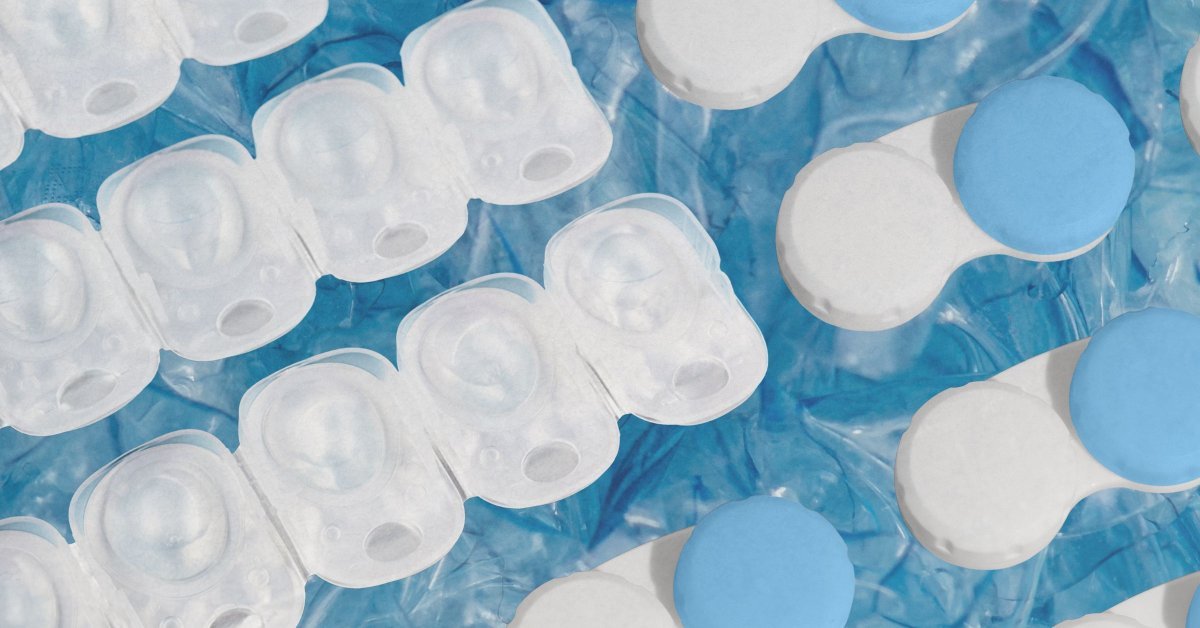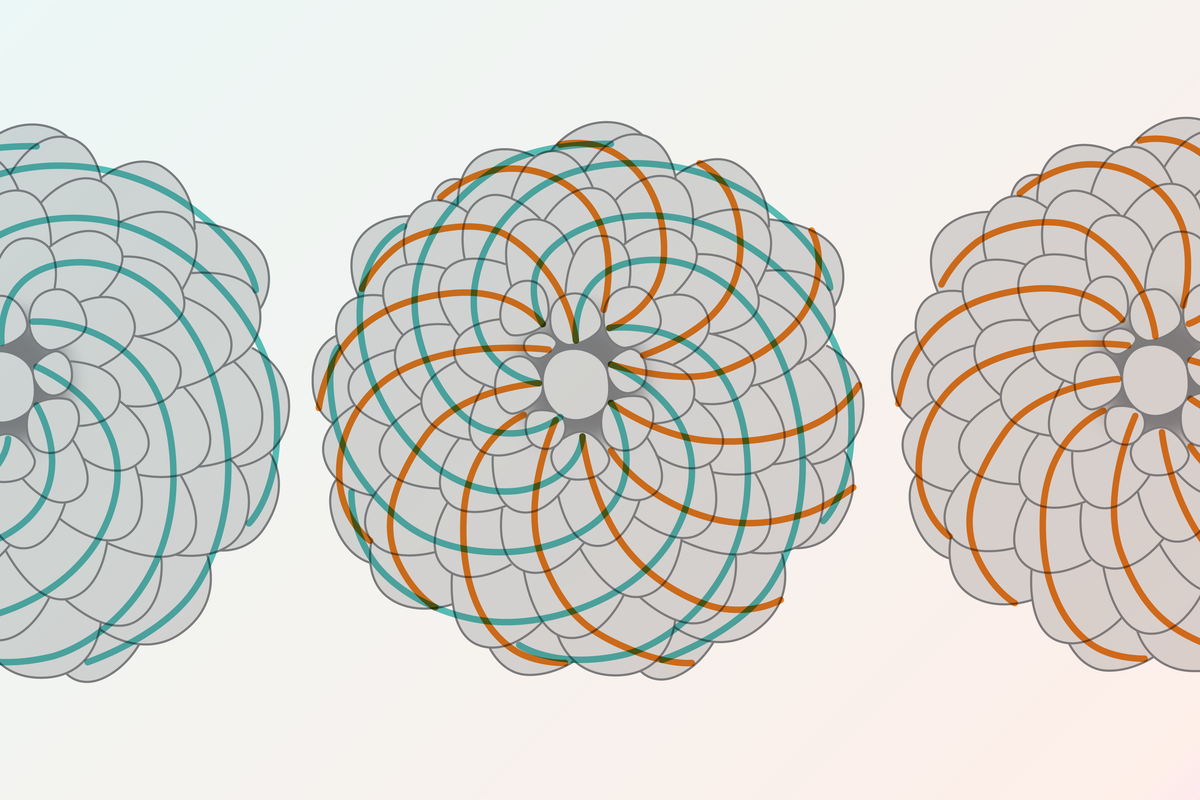You don’t need 20/20 vision to clearly see the benefits of daily contacts, eye doctors agree. Compared to monthlies, daily lenses “have a pretty big advantage,” says Dr. William McLaughlin, an optometrist at The Ohio State University Wexner Medical Center. “They’re more comfortable, more convenient, and you’ll have better eye health if you’re using a fresh lens every day. They’re absolutely the way to go.”
Here’s a look at why daily lenses beat out monthlies—plus how to put the higher price tag into perspective.
They counteract bad habits
Daily lenses are an “easy yes” for people whose contact hygiene could use a tune-up, says Dr. Neal Guymon, an optometrist in Idaho known as Dr. EyeGuy online. That includes those who sleep in their lenses (which deprives oxygen from the eyes, just like “sleeping with a paper bag over your head,” he says), don’t clean their cases regularly, slack on subbing in new contact solution, and forget to switch into a new pair every month.
Contact overuse—wearing lenses for more days than you should—can lead to inflammation on the eyeballs or eyelids, including giant papillary conjunctivitis, which is essentially an allergic reaction to wearing contacts for too long. “It can be super irritating and hard to get rid of,” Guymon says. Sometimes, overuse can cause lenses to be “clogged up with debris, so they lose the ability to transfer oxygen through the contact,” he adds, which leads to corneal neovascularization, or blood vessels that burrow into the cornea.
Read More: Battling Dry Eyes? Here’s What Actually Helps
How you take care of your monthly lenses when they’re not in your eyes matters, too. Contact cases harbor bacteria and biofilm (the sticky, slimy film that accumulates on your eyelids), so you should wash them every day, after you pop your lenses in. It’s also a good idea to replace the case once a month, Guymon says, perhaps getting into the habit of doing so when you switch into a new pair of lenses. You should also replace the disinfectant solution in your case every day.
“When people come into my practice because they have an eye infection or an eye problem that’s related to contact lenses, 99 times out of 100, it’s someone who’s either been sleeping in contacts or wearing the same lenses for three months,” Guymon says. “Dailies are better, but they’re not necessarily better because they’re the better contact (which they are). It’s more because people treat them the way they should be treated.”
They have superior construction
When daily lenses were introduced in the 1990s, ophthalmologists worried that people would wear them for more than just one day—that they’d buy a 90-pack and then never see their eye doctor again, stretching the lenses out far longer than they should. But those concerns didn’t come to fruition. Daily lenses are so comfortable that people tend to quickly adapt to their new routine: Wake up, pop in a fresh set, go about the day, and then take them out and toss them in the trash, no solution or contact case required.
“It’s a mindset,” says Dr. Christine Sindt, a clinical professor of ophthalmology and visual sciences at the University of Iowa’s Carver College of Medicine. “If you try to wear a daily disposable the second day, you will physically go, ‘Oh, I don’t feel as good.’ People notice it, because it feels so good that first day. It turns out that when people wear dailies, it becomes who they are—it’s their pattern of behavior.”
Read More: 10 Symptoms ER Doctors Say to Never Ignore
In part, that’s because daily lenses are constructed differently than monthlies. They’re thinner, which means they’re less likely to create small corneal abrasions, or scratches on the surface of the eye. Plus, they’re made out of different plastics and have different surface coatings that allow them to be more biocompatible, which means they don’t harm any living tissue. (Monthlies, on the other hand, can, especially if you wear them for longer than their intended lifespan.) Some dailies, for example, are coated with phospholipid, which is what cell membranes are made of. “For patients who have dry eyes, I’ll put this lens on them, and it’ll feel like a cozy blanket on the surface of their eye,” Sindt says. “These lenses aren’t only more comfortable [than monthlies]—in many cases, they’re more comfortable than the bare eye.”
They prevent grimy buildup
When you wear the same contacts every day, they attract all kinds of proteins, lipids, and enzymes that are found in the tear film that keeps your eyes lubricated. “When you have a foreign body in the eye, every time you blink, the body’s mechanism is to try to protect itself,” which means it will secrete tears, says Dr. Shahzad Mian, a professor of ophthalmology and visual sciences at University of Michigan. “The more irritated the eyes are, the more proteins there are in your tear film—and those deposits then stick to the contact lens and cause even further irritation. It’s a bad cycle some patients get stuck in.”
If you’re wearing daily lenses, on the other hand, you’ll be tossing any buildup out at the end of the day—which means it won’t have the chance to accumulate.
They protect against infection
Sindt is a “huge fan of daily disposable contact lenses,” she says. “And the reason is, I’ve been doing this a very long time, and I’ve seen a lot of eye infections. Wearing contact lenses is not benign.”
When people land in her exam room, they’ve often developed a painful bacterial, parasitic, or fungal eye infection stemming from poor contact hygiene or overuse. While some infections cause little more than irritation, others could lead to vision loss or require a corneal transplant. “I see the patients who have had adverse events,” Sindt says. “I hear the stories, and it’s an everyday thing. It’s kind of like playing Russian Roulette, people who don’t take care of their contact lenses.”
You can generally get away with poor contact hygiene for a while, especially when you’re young. Youth is an “amazing protectant,” Sindt says—young people have thicker tear films, as well as eyes that are less likely to become inflamed. But that doesn’t last forever. “If somebody goes along with their bad habits, at some point, they’re going to get older, and they’re going to end up with an infection,” she says. “It catches up to everybody.”
Read More: What to Do About Your Red, Itchy Eyes
That’s why even though dailies generally cost more than monthlies, eye experts say they’re worth it. You’ll save on contact solution and new cases, for one thing. Plus, “what’s the cost of an eye infection?” Sindt says. “If you have a red eye and you have to take time off work—or if you hurt—what’s the cost of pain? What’s the cost of being annoyed? Those are all costs that people don’t think of up front.”




